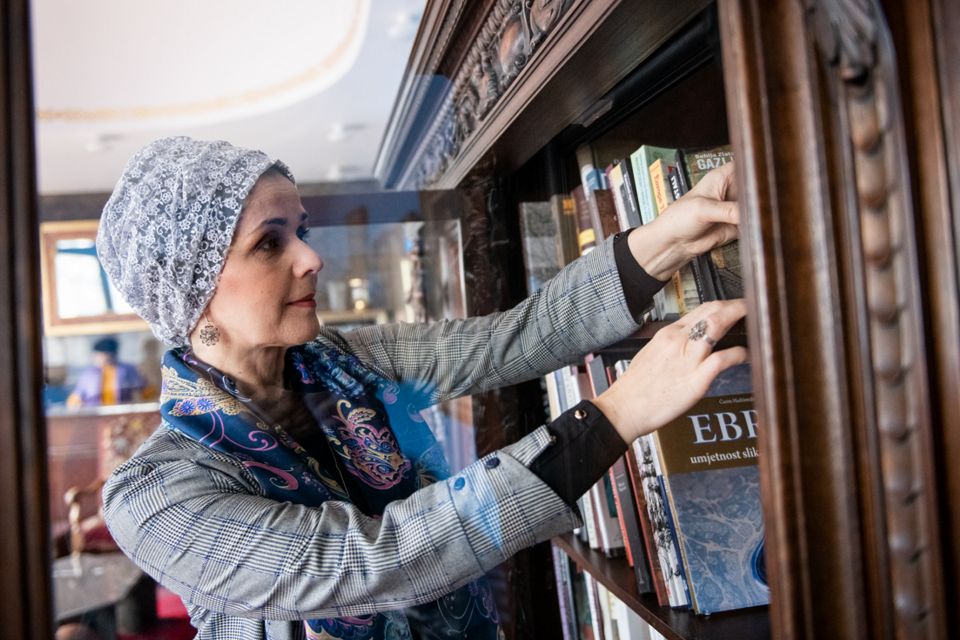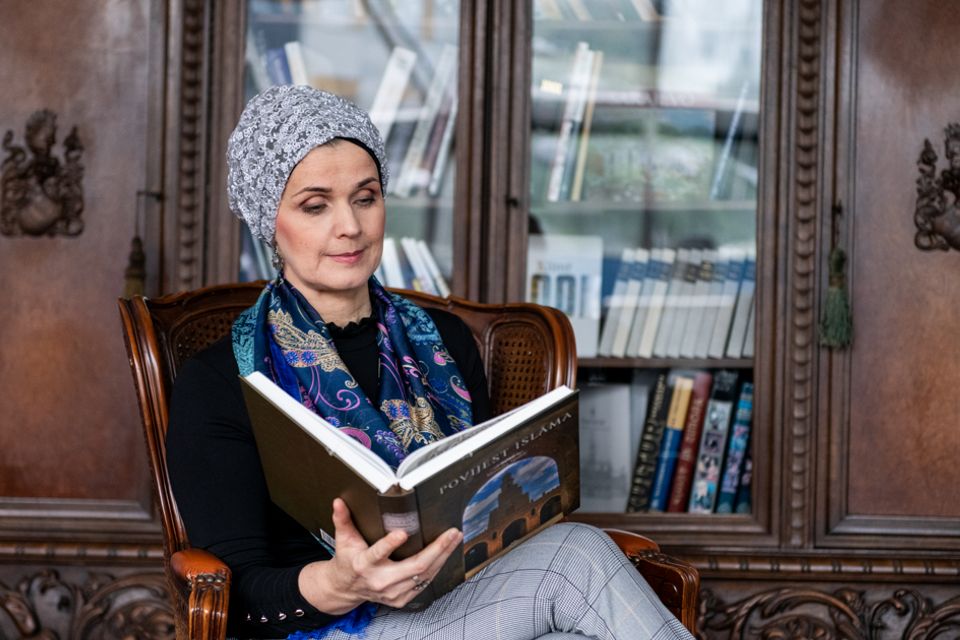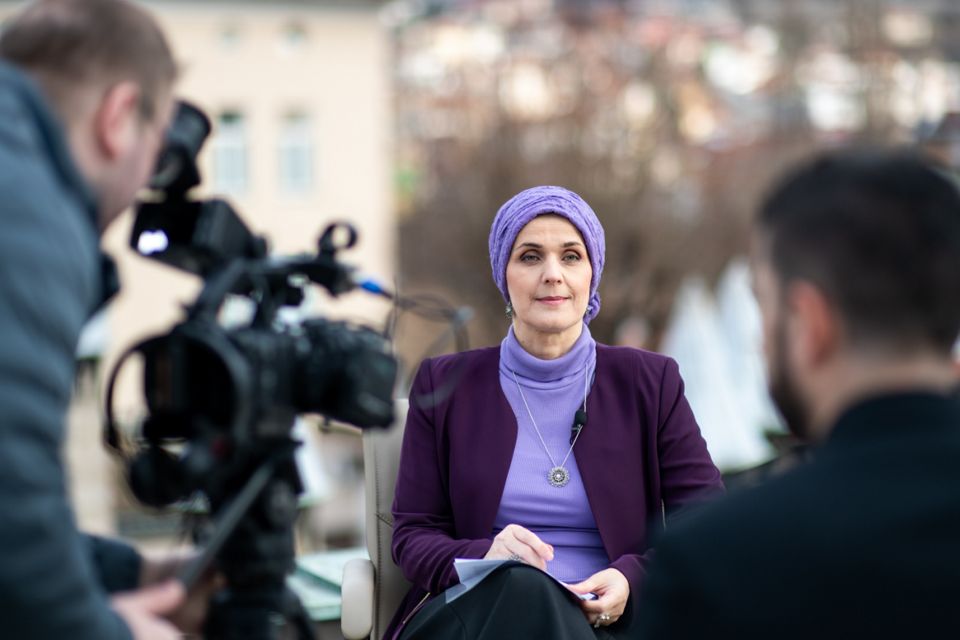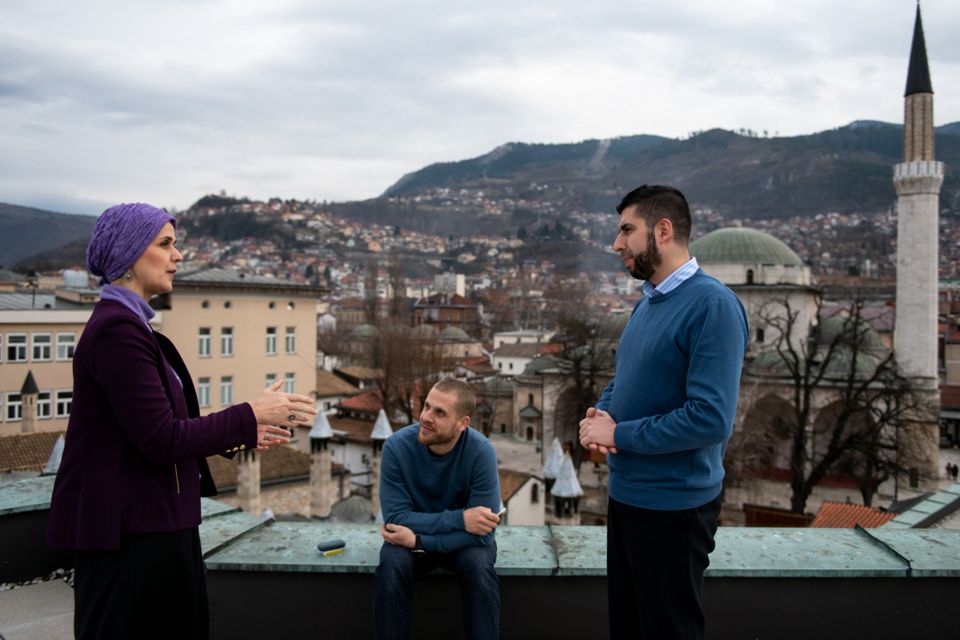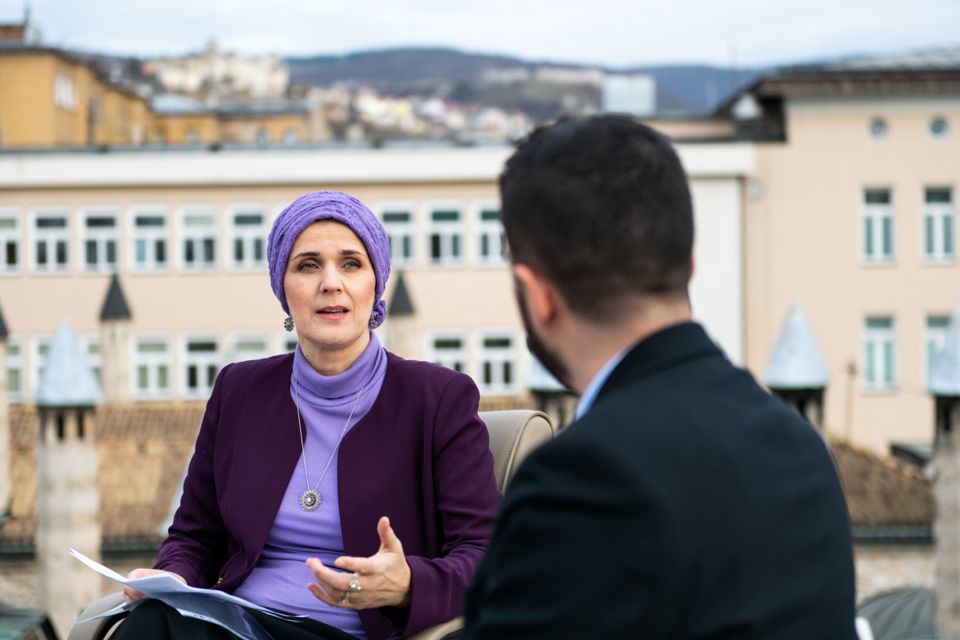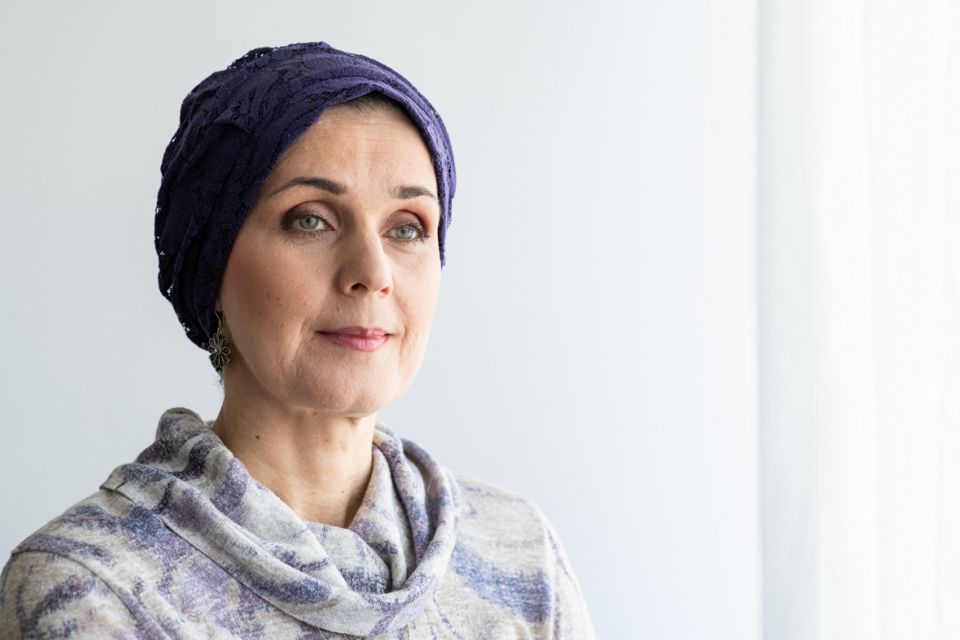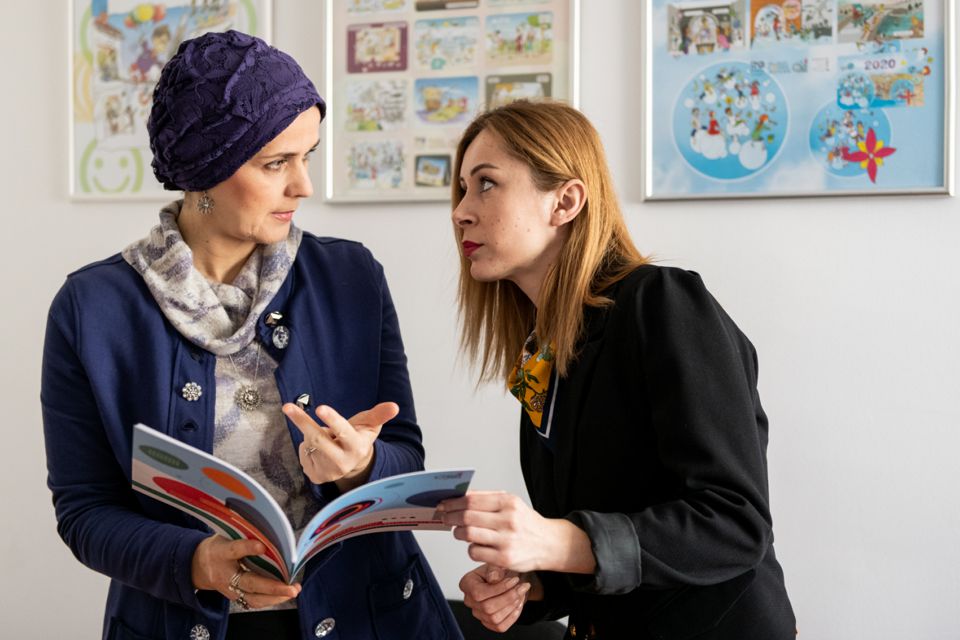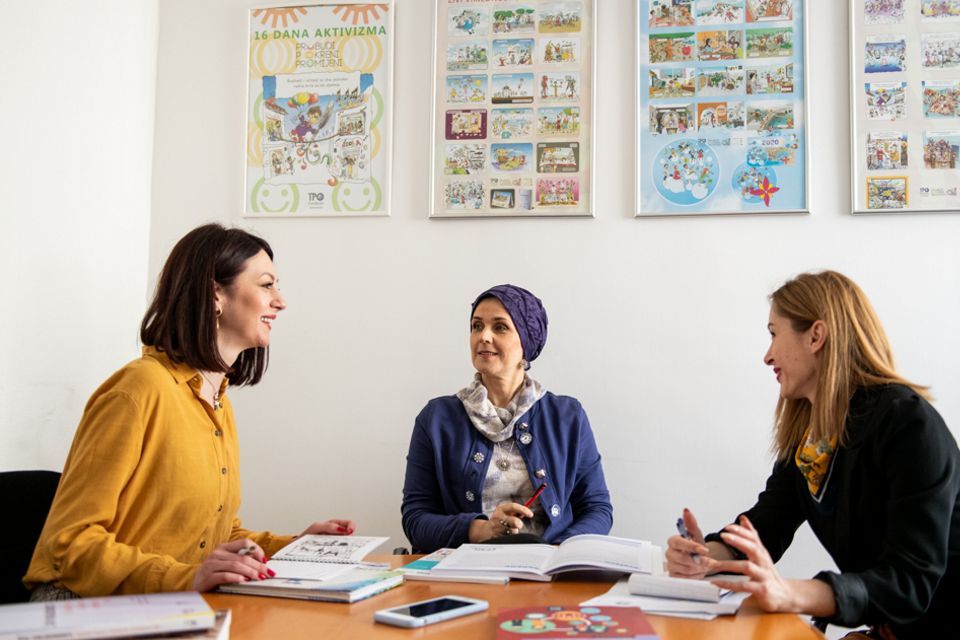Zilka Spahić Šiljak: A leading Muslim scholar from Bosnia and Herzegovina changing mindsets to empower women
Date:

Zilka Spahić Šiljak is a ground-breaking professor of gender studies in Bosnia and Herzegovina and one of the country’s first Muslim female scholars to publicly identify as a feminist. Her academic work focuses on human rights, women’s rights, religion and feminism in Islam.
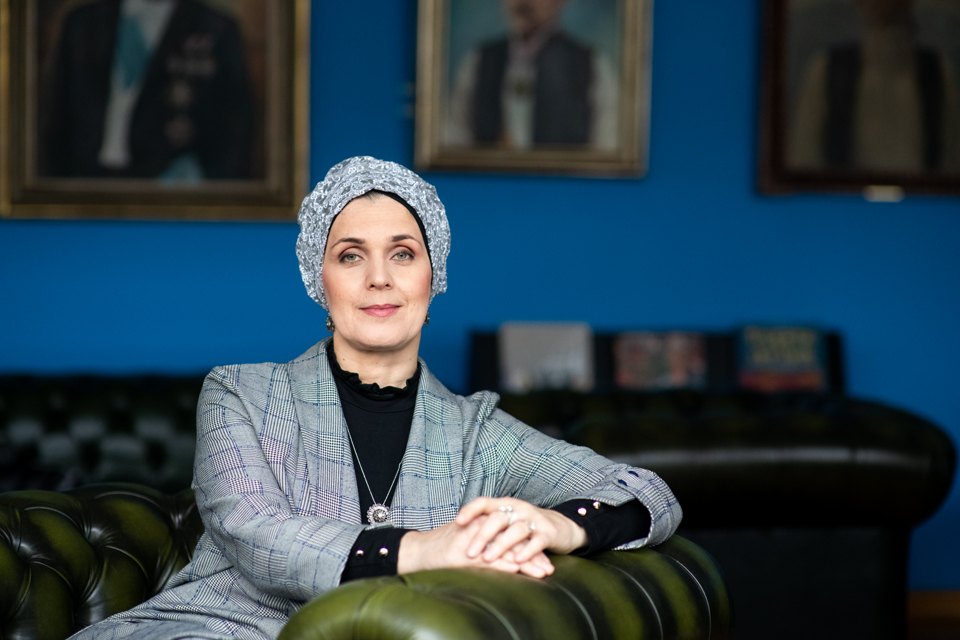
Professor Zilka Spahić Šiljak’s journey to feminism started in 1993, during the war in Bosnia and Herzegovina. Having just graduated from the Islamic Studies department of the University of Sarajevo, she joined the psychosocial team of a women right’s organization, Medica Zenica, providing assistance to victims of wartime rape.
“I was young at that time,” Zilka recalls. “I didn't know what gender was, what feminism was. I didn't have a clue! I just wanted to help these women. I met women there who expanded my horizons.”
The notions of gender and feminism were not on the national agenda then. “We didn't have time to study or to learn about it,” she says. “Basically, it was a period where we had to learn how to survive, how to provide immediate support for someone who suffered. And, we didn't have time to try to study concepts and theories. We just did it.”
Later, Professor Zilka continued her studies and learned that what she’d been doing at that time was implementing feminist theology. She used a feminist critique to challenge and correct traditional ideas about women and how their roles are perceived in Islam.
“Out of nowhere - from scratch, together with other colleagues, I developed something that was later named feminism and feminist theology,” says Zilka. “We just did what was right at that moment; my feminism was formed by my activism. And I did something really amazing!”
My feminism was formed by my activism.”
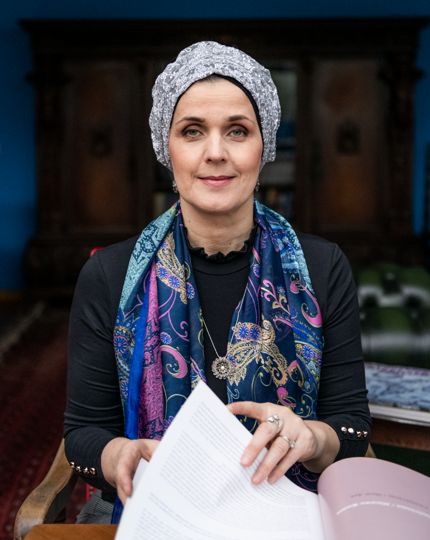
Religion as an ally to women’s empowerment
Zilka started her local organization, TPO Foundation, in 2006 to focus on gender equality and peacebuilding, including religion as one of the components of their work. “We are not a faith-based organization. We are not a religious organization,” she says. “We are a regular non-governmental organization that uses religion as one of many arguments for the promotion of women and human rights.”
Religion plays an important role in Bosnia and Herzegovina - it is a part of the identity in politics. “So why not use the potential of these religious traditions as counterarguments?” asks Zilka. “We can use them to promote peacebuilding and gender equality. This is what I'm trying to do, to defeat patriarchy with arguments from the same source.”
 I'm trying to defeat patriarchy.”
I'm trying to defeat patriarchy.”
— Zilka Spahić Šiljak
It can be a risky strategy and people have attacked her openly, even threatening her life. A couple of years ago she challenged mainstream interpretations of Islam on social media. One of the imams wrote about the subordination of a woman to a man. “I politely challenged him,” explains Zilka, “saying that through the centuries, Muslims managed to abolish many practices that are part of the Koran and mainstream teachings, such as slavery and concubines. So why are they not able to abolish patriarchy?” she questioned.
To her surprise, men reacted positively, but women attacked. “I received death threats and emails that I simply couldn't believe women were able to write. They couldn't accept that someone thought differently, that someone had a different approach,” she explained.
Zilka regrets that unfortunately many women in Bosnia and Herzegovina are defenders of the patriarchy: “They are the ones who do not allow other women to pass.”
Challenging perceptions about women in politics and Islamic community life
When Zilka was conducting research for her PhD on religion and politics, she explored how the practices of Judaism, Christianity and Islam impacts on the position of women in politics and in public life. She organized focus groups with women and men across the country. In one village, she met a man who was unhappy that the gathering was organized without his permission. Still, he joined the conversation and talked about gender relations and family relations.
“It was the first time in his life, he was 74, that someone had asked him what he thought about it,” Zilka smiles. They discussed how women can be a part of politics and public life, but also a part of the Islamic community and participate in the elections. “Islamic community of Bosnia and Hergezovina is pretty much decentralized and women can participate in elections [for its local bodies], but they usually don't. He promised me that he will appoint a woman in the local body in the mosque,” Zilka recalls.
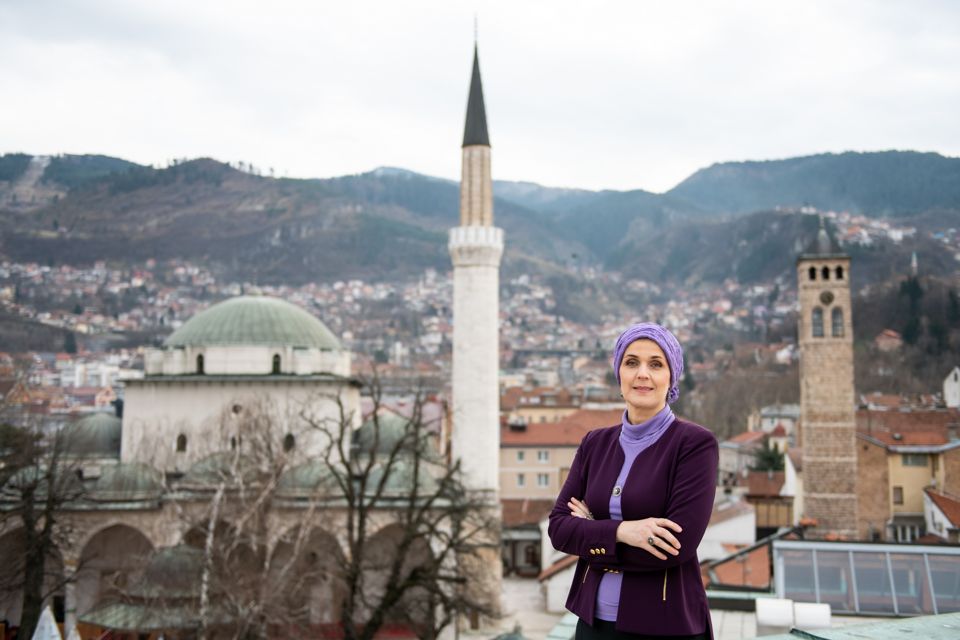
Zilka is optimistic that the path is opening up for more women to get involved at local mosques across the country, but change will take time. “The problem is, women simply don't understand why it is important to be part of the process of decision-making, or creating policy, why would they do that? Because it's just an additional obligation for them,” Zilka explains.
Education is the key to future equality
Zilka says that men in politics generally find it difficult to accept women as equal partners and allies to building a better society in her country.
“As long as we have women, but also men, who believe that there is no social justice without gender justice, we have hope that something can be changed,” says Zilka. “And, if we continue to educate young people through formal and informal education, we can do something.”
Zilka believes that gender equality courses and gender education should be introduced from kindergarten. “It's important to start with that from the early stages of life, to integrate it into education and then hope for a more gender-equal society in the future. That's what I'm fighting for.”
Zilka has been working for a long time to realize institutional changes. She started with schools and cantons in Bosnia. She hopes that over the next few years, that she’ll be able to work with more ministries of education to integrate gender equality courses and content into the official curricula.
Working with the institute of education in Mostar, a city in southern Bosnia and Herzegovina, she is also testing ways to empower women and youth to unleash their leadership potential. “Women know more,” Zilka says. “They achieve better results. But their confidence is still low, which means that we have to go back to primary socialization, to family, to see what's wrong - which means culture and religion again.”
Never stop believing in gender equality
Professor Zilka is proud that she introduced modules on gender-based violence into the existing curricula in two universities in Bosnia and Herzegovina. She also teaches gender and culture courses at the University of Zenica.
“I always say to my students, you need to find a purpose in your life and pursue what you believe in. If you believe that something is right, go for it,” says the Professor. “For me, it's gender equality.”
Find a purpose in your life and pursue what you believe in. If you believe that something is right, go for it.”
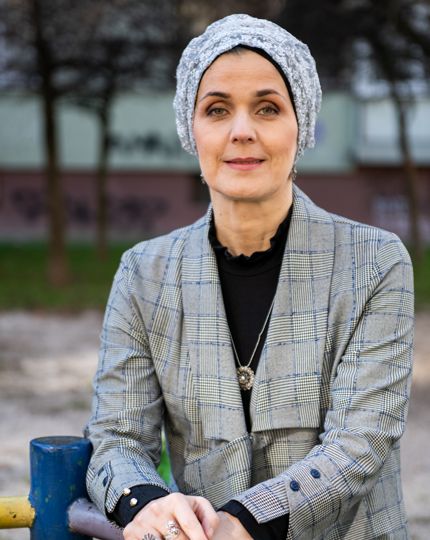
Let’s reimagine our world. Equality everywhere. How? Generation Equality has the answers! For the 25th anniversary of the Beijing Declaration and Platform for Action, we asked 25 women to probe still hidden issues and share inspiring ideas on getting transformation going, for good.
